WA columnist Elaine Storkey, 78, on coming to faith, motherhood, feminism – and her biggest life lesson
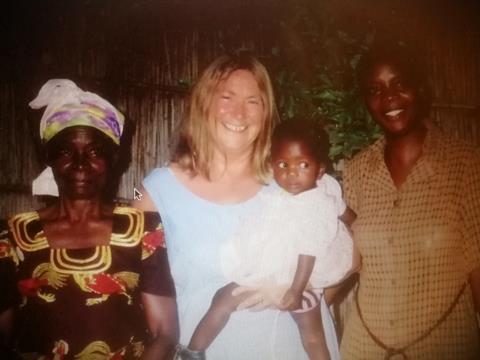
I was born in Ossett at the end of the second world war. My brother and sister arrived eight and ten years later, so there was a huge gap when it was just my mother, myself, my grandmother and my mother’s sisters. I learned all my communication skills from Yorkshire women!
My father was a naval officer and a star of my life; he was very encouraging, loving and supportive.
I was the head girl of our school, and was trusted with a lot: I was a stand in for teachers, represented the school for official occasions and gave speeches. It was quite a training for a young girl.
My mother was Anglo-Catholic and my father a lifelong doubter. He came to a strong Christian faith in his 50s, although he still had many questions.
I became a Christian at the age of 16, but before that, I prayed a lot, realising prayer meant something. But it wasn’t until I was 16 that I heard the gospel in all its clarity at a youth camp.
Life as a young adult
After school I thought I wanted to be a lawyer. I fancied myself as a barrister on a big stage pleading for matters of international justice. But at university I saw how boring case studies could be! I focused on literature and philosophy then majored on philosophy.
I worked with radical feminists who couldn’t stand Christianity because they felt it was male-dominated
I chose Aberystwyth University, as I felt l needed to see what life was like outside Yorkshire. After completing a second degree in Canada, I came back to England to study for a PhD at York and Oxford. I went along to a Christian graduates’ conference, attending a workshop hosted by my previous chaplain in Aberystwyth. He came over and said: “Elaine, you’re not allowed to speak in this discussion, because you’ll dominate it and intimidate the men. So you’ll take notes.”
I should have just told him to push off, but I sat down and took notes. I’d read the book the workshop was about, and it was quite clear others hadn’t. Yet, every now and again, a voice spoke with sanity, wisdom and insight, and I took note of who it was. I rushed up to him afterwards and said: “I’ve read the book too!” His name was Alan and we had an instant rapport.
I had to leave the conference early, so I did something very out of character; I went to him, explaining: “I’ve got to go home now, but here’s my address if you want to stay in touch.” By the time I got home there was a letter waiting for me. Alan and I met about five times and then got engaged, marrying in 1968.
Marriage, work and parenting
I joined Alan in the sociology faculty of Stirling University. It was a new university finding its feet and difficult for us as newlyweds. Especially as we barely knew each other. Nobody told me what it’s like to live with somebody! We were passionately in love but found things a challenge. We made lifelong friends, then moved back to England and went on to have three sons, Amos, Matthew and Caleb.
I loved motherhood, turning down a full-time university job to be home. Both Alan and I co-parented our firstborn for three years. Then Alan became head of economics in a college, and I taught university classes in the evening.
“They have never heard a white woman apologise”
Our second son came in 1974, and our third son in 1977. By this stage, I was home fully involved with the boys during the day, and running several night classes locally and for the Open University. I wouldn’t have swapped that for anything. I love being a mother.
I taught sociology and philosophy, then became director of the London Institute for Contemporary Christianity. Because I was theologically articulate, people kept referring to me as a theologian. Eventually I was given a Lambeth-Oxford Doctor of Divinity on published work.
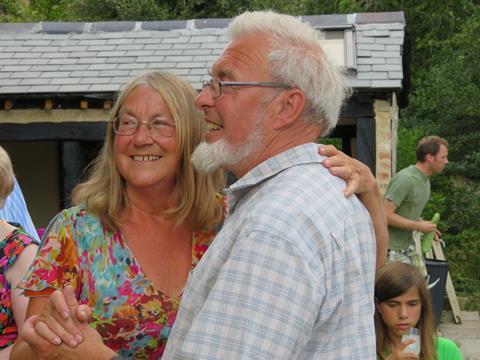
A voice for feminism
I woke up to the fact that women have limited chances in life. I worked with radical feminists who couldn’t stand Christianity because they felt it was male-dominated. They challenged me to explain why I believed the scriptures affirm women.
Liberation in the gospel is a different kind of liberation from that in most secular organisations. For many, liberation comes through work, choice, power, individual freedom, the right to do what you like with your own body and so on. But Christian liberation is much deeper. It’s a liberation of identity and spirit: knowing who you are before God. I am a feminist, although I never called myself that – somebody else did, but I’m glad they did because I got invited to umpteen feminist groups, non-Christian as well as Christian ones.
I have been writing for Woman Alive since it started in the 1980s. I felt it was a really important initiative because it included Christian feminist insights from the beginning, relating the scriptures to women’s lives. It’s always had an underlying sense of freedom to explore and be who we are in Jesus.
Tearfund
I was the president of Tearfund for 17 years. I had some of the most direct experiences of God and his goodness and grace in that time.
Once, I was invited to meet Christian leaders in the Congo. I was told it could be quite hostile, and I didn’t have to go. I went, and it was hostile, because people were angry at Christians in the West and the flippancy of our faith. They said that the media hooked on to things that don’t matter, while we were busily manufacturing and selling arms that were then used against Christians in Congo. They asked what I had to say about it.
I replied: “You’re absolutely right. We do sleep comfortably in our beds; the media don’t inform us and all I can do is apologise for my part in this and my own lack of persistence in calling our nation and Christians to account for our apathy towards our brothers and sisters. I apologise for my own hypocrisy.”
Suddenly someone stood up, singing in tongues, and then the whole meeting erupted. I asked my host where we were in the programme, commenting: “It doesn’t say worship?” He laughed and replied: “Sister, you will now see the heavens open and the Holy Spirit bless us – they have never heard a white woman apologise.”
I sat in tears. I did nothing other than say sorry but God’s power poured into the meeting and restored us.
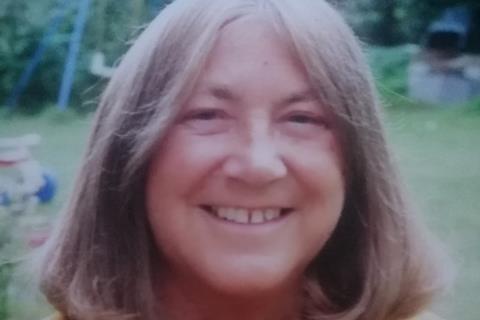
Learning to listen
I’ve often reacted very quickly to things and then been proved wrong. So one of my life’s lessons is to recognise that I’m quite likely to be wrong. First judgments and impressions may mislead when I respond immediately. So I’ve learned to give another person room to be who they are, and be more ready to listen and learn than to speak and rebuke.
Prayerful listening with the Holy Spirit is vital. Whenever I hear something in someone’s voice that says: “I’m going to share something now that I need you to hear”, I pray: “Holy Spirit, direct me.” Even if it is a chance encounter on a train or bus, I’ve got to hear what it is that God wants me to hear so I know how to respond.
I’ve done a lot of broadcasting and was once in a lift going to broadcast with BBC Radio 4’s ‘You and Yours’. The man taking me asked what I was talking about, and I said a Christian comment on individual rights. He asked if I knew someone called Justin, a lovely Christian guy in the BBC who had recently died. I prayed: “OK, Lord, help me now. We’ve just got the lift journey.”
Be more ready to listen and learn than to speak and rebuke
I responded: “Yes, I knew him very well; he was a close friend of mine. How did you know him?” He explained they did their training together and that he was a really first-class man. So I said: “He was a man full of faith and commitment to Jesus; that’s what drove his life.” He agreed, adding: “He went around evangelising all of us!”
I asked what that meant to him, and he said he was always interested. I asked: “Did you ever share his faith or ever feel led to do that?” He replied: “Well, no, there were always too many barriers in my life, too much stuff, getting in the way.”
By this stage, we arrived at the floor, and I turned around to him, took his hand and said: “But life hasn’t finished yet. There’s still time.” He looked at me, squeezed my hand and said: “That’s exactly what Justin would have said, thank you.”
I went off to the studio and I don’t know what happened after that. But I just trust that God knows. Such encounters happen a lot and, within a few seconds, I know that a person needs God. So one of my biggest life lessons is: learn to listen.
Elaine Storkey writes our regular Bible Study series.
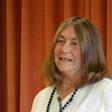












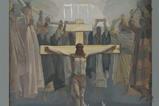
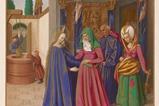
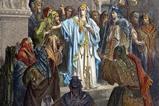


















No comments yet